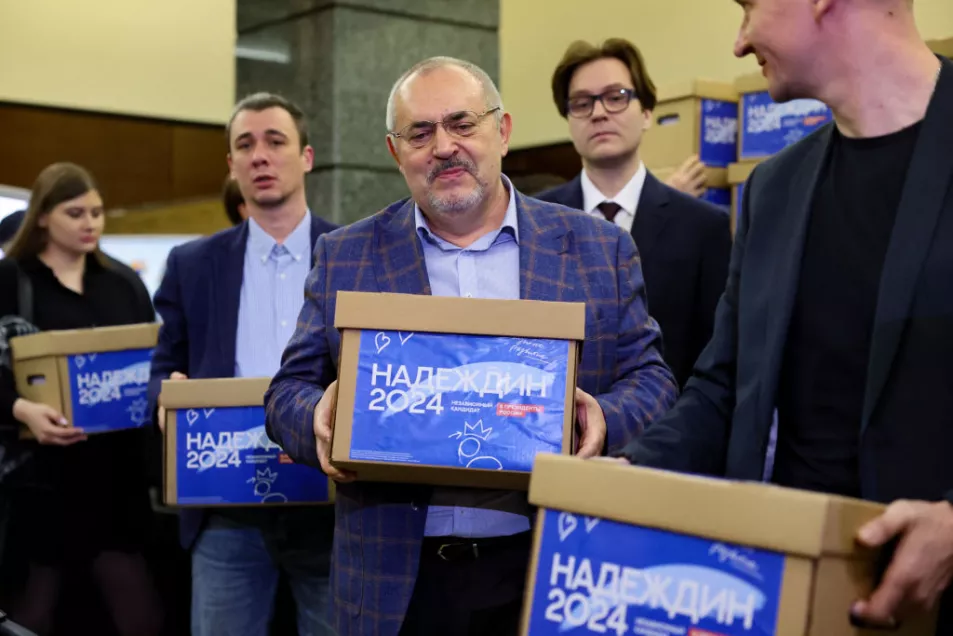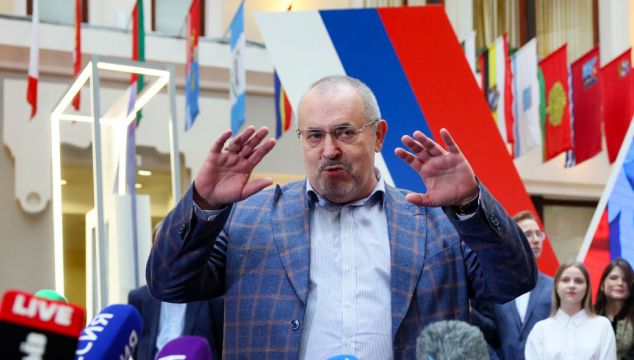Russian anti-war candidate Boris Nadezhdin said on Wednesday he had submitted 105,000 signatures of support to the Central Election Commission (CEC), technically enough to challenge incumbent Vladimir Putin in the March presidential election.
Putin's victory is widely seen as a foregone conclusion, but Nadezhdin has surprised some observers with trenchant criticism of what the Kremlin calls its "special military operation" in Ukraine, something he says he would end.
Kremlin critics say Nadezhdin would not have been allowed to get this far in such a tightly-controlled political system without the authorities' blessing, something he denies.
Still, his outspoken statements about Russia's war in Ukraine have stoked speculation that he has crossed an unspoken red line and will be barred from running on a technicality or forced to drop out.
Election officials will now check the authenticity of the signatures submitted by Nadezhdin and other would-be candidates and announce next month who will join Putin on the ballot paper.
Signature 'irregularities'
The CEC has in the past uncovered what it has said are irregularities in signatures collected by some candidates and disqualified them as a result.
In a statement posted on his official Telegram account, Nadezhdin thanked his supporters.
"This is my pride," he said, referring to the signatures collected.

"The work of thousands of people going without sleep over many days. The result of the queues you stood in, in the cold, is in the boxes. It will be very difficult for the CEC and the authorities to say: 'I didn't notice the elephant in the room!'"
He also posted a video from the CEC's headquarters, showing stacks of papers containing the signatures neatly piled up on tables ready to be checked by officials, describing which region of the world's largest country each stack had come from.
Heating outages
After a series of heating outages across Russia during a cold winter, Nadezhdin said earlier this month that the country would be able to afford to spend more on its citizens if it was not pouring so much money into the military.
As a candidate nominated by a political party, Nadezhdin needed to gather 100,000 signatures across at least 40 regions in order to stand in the March 15th-17th election.
Putin, who has chosen to run as an independent rather than as the candidate of the ruling United Russia party, needs 300,000 signatures. He has already collected over 3.5 million, according to his supporters.







